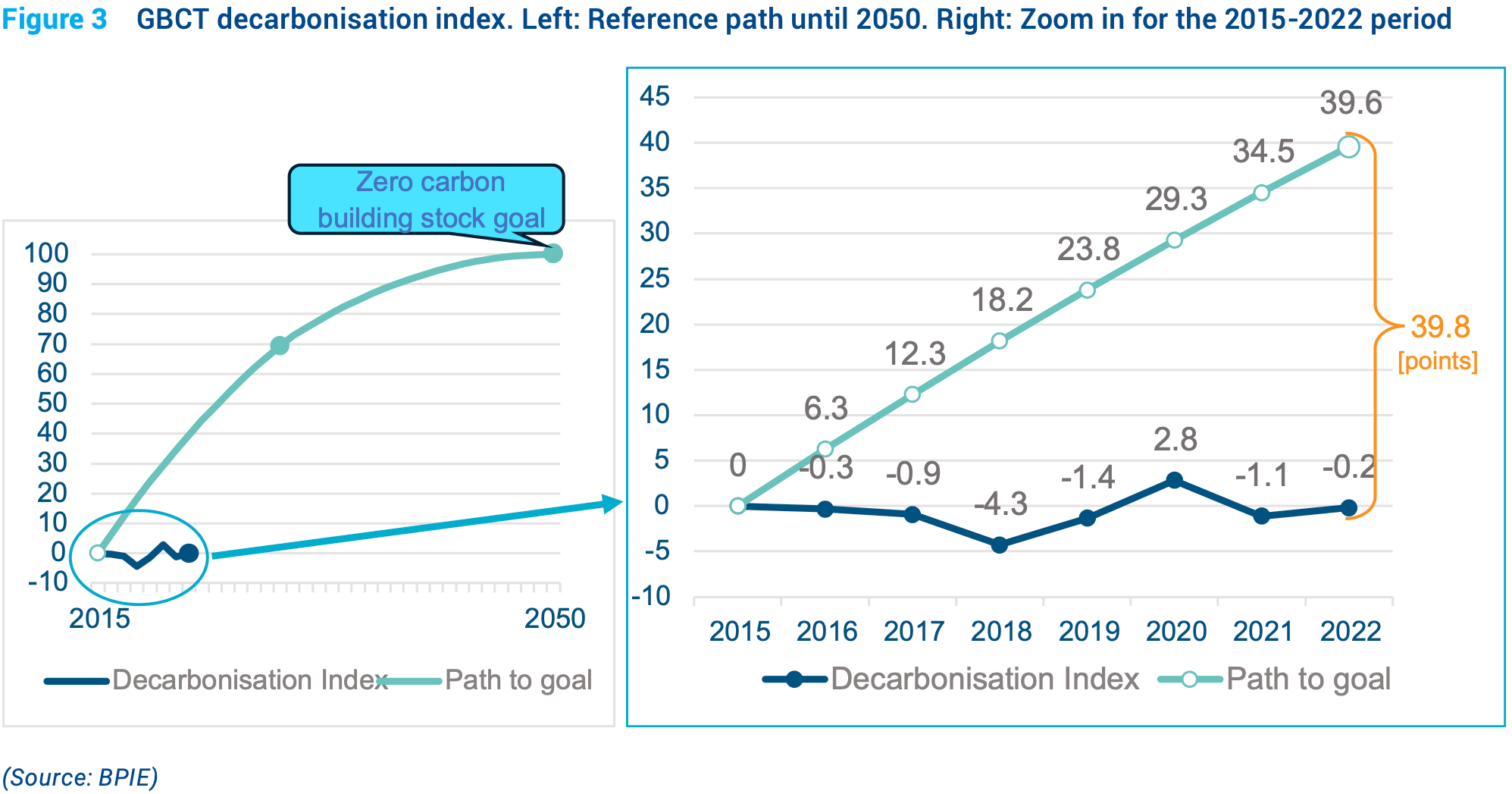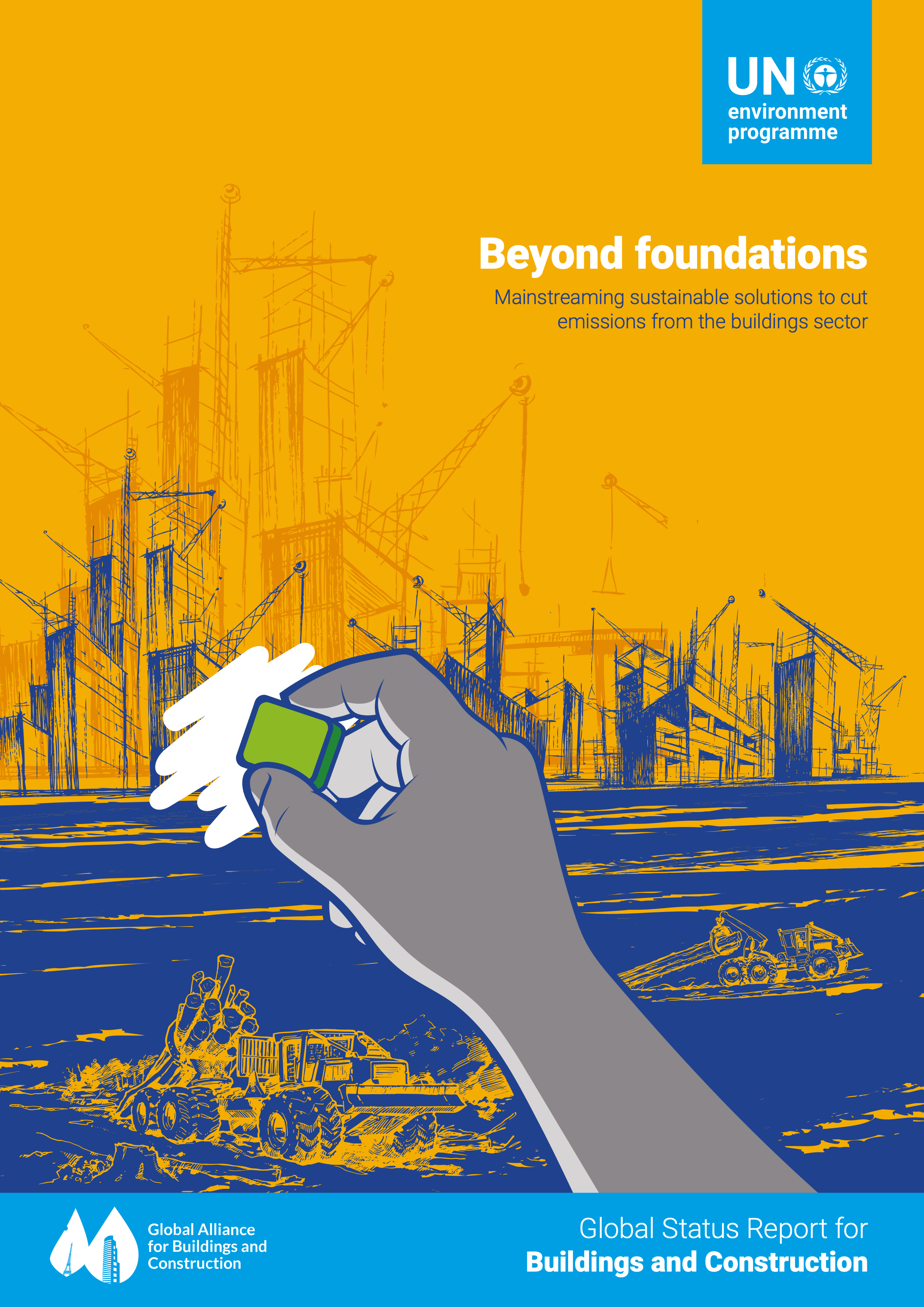The Global Status Report for Buildings and Construction (Buildings-GSR) is a flagship publication of the UNEP-hosted Global Alliance for Buildings and Construction (GlobalABC). The Buildings-GSR provides an annual snapshot of the progress of the buildings and construction sector on a global scale and reviews the status of policies, finance, technologies, and solutions to monitor whether the sector is aligned with the Paris Agreement goals. It also provides stakeholders with evidence to persuade policymakers and the overall buildings and construction community to take action.
Global Status Report for Buildings and Construction: Beyond foundations: Mainstreaming sustainable solutions to cut emissions from the buildings sector
As outlined in the latest edition, the buildings and construction sector contributes significantly to global climate change, accounting for about 21 per cent of global greenhouse gas emissions. In 2022, buildings were responsible for 34 per cent global energy demand and 37 per cent of energy and process-related carbon dioxide (CO2) emissions. Despite a 3.5 per cent reduction in energy intensity, overall energy demand and emissions rose by about one per cent from 2021.

Policy progress is evident with more comprehensive climate action plans covering buildings and construction in Nationally Determined Contributions (NDCs). However, few align with net-zero operational emissions, and while over 81 countries have building energy codes, many are outdated.
Investment in building decarbonisation exceeded US$285 billion in 2022 but is expected to decline in 2023, largely due to a less favourable investment environment due to rising costs. The necessary increase in investments falls short of the net-zero targets for new and existing buildings by 2030 and 2050, respectively.
The 2022 update of the Global Buildings Climate Tracker (GBCT) paints a concerning picture: the gap between the current state and the desired decarbonisation path is significant. The GBCT indicates that to align with the 2030 milestone, an annual increase of ten decarbonisation points is now required, a substantial jump from the six points anticipated per year starting in 2015.

The GBCT shows a negative rebound since 2020 in the decarbonization of the buildings sector, with increased energy intensity and higher emissions. The gap between the actual climate performance of the sector and the necessary decarbonization pathway is widening. The lack of structural or systemic decarbonisation improvement in the building sector leaves its emissions reductions vulnerable to external factors.
To reach the goals of net-zero carbon emission buildings for new buildings by 2030 and existing buildings by 2050, stronger policies are needed to enhance energy efficiency and address carbon emissions from building materials and construction. National efforts are crucial, with countries forming coalitions to share best practices and promote low-carbon construction.
This year, the deep dive chapters are the following: Adaptation and resilient construction methods; Innovations in business cases (renovation and green building construction industry); and Nature-based solutions and biophilic design.
A welcome development in 2023 was the Buildings Breakthrough launched at COP28, to coordinate between countries to make clean technologies and sustainable solutions in the buildings and construction sector the most affordable, accessible, and attractive option in all regions by 2030.
Looking forward to 2024, the focus must be on tangible emission reductions, enhancing building performance, increasing renewable energy use and addressing housing and energy access disparities. Despite the complexities, strategic partnerships can facilitate the shift to an efficient, resilient and whole life net-zero carbon global building stock.
Download the previous editions:


